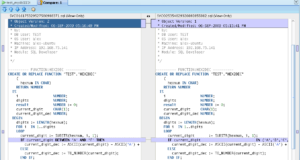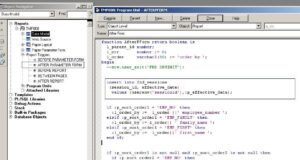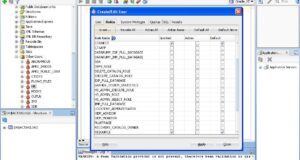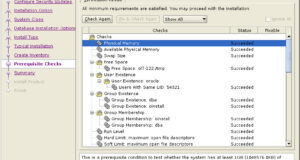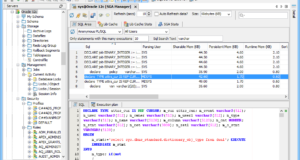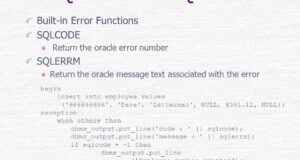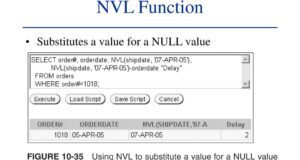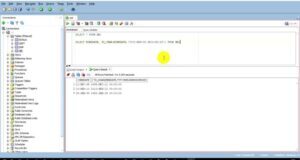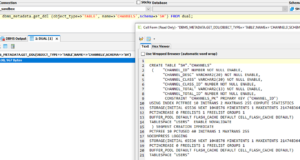Tag: Oracle
The Oracle/PLSQL ASCIISTR function converts a string of any character set to an ASCII string using the database character set. Syntax of the Oracle/PLSQL function ASCIISTR ASCIISTR( string_id...
The Oracle/PLSQL ASCII function returns the numeric representation of the leftmost character of the string. Syntax of the Oracle/PLSQL ASCII function ASCII( single_character_id )...
Oracle PL/SQL FunctionsFunction DescriptionBFILENAME The Oracle/PLSQL function returns the BFILENAME locator corresponding to the operating system's physical filename file...
Oracle/PLSQL USERENV function is used to get information about the current Oracle session. Although this function still exists in Oracle for backward compatibility, it is recommended to use the...
Oracle/PLSQL USER function returns user_id from the current Oracle session. Oracle/PLSQL syntax of the USER function USER Parameters or arguments The USER function has no parameters or...
Oracle/PLSQL function UID returns an integer number identifying the current database user. Oracle/PLSQL syntax of UID functions UIDThe UID function has no parameters or arguments.The...
Oracle/PLSQL function SYS_CONTEXT is used to get information about the state of Oracle environment. Syntax of Oracle/PLSQL function SYS_CONTEXT SYS_CONTEXT( namespace_id, parameter_id, [...
The SQLERRM function returns an error message related to an exceptional situation. This function can only be used in the exception handling section of your code. Syntax of SQLERRM...
The SQLCODE function returns the error number associated with an exceptional situation. This function can only be used in the exception handling section of your code. SQLCODE function...
Oracle/PLSQL NVL2 function extends the functionality of the NVL function. It replaces the value when a Null value is encountered and also when a non-Null value is encountered. Oracle/PLSQL...
Oracle/PLSQL NVL function allows you to replace the value when there is a Null value. Oracle/PLSQL syntax of NVL functions NVL( string1_id, replace_with_id ) Parameters or arguments...
Oracle/PLSQL NULLIF function compares expr1 and expr2. If expr1 and expr2 are equal, the function NULLIF returns NULL. Otherwise, it returns expr1. Oracle/PLSQL syntax of the function...
The Oracle/PLSQL NANVL function allows you to replace a value for a floating point number such as BINARY_FLOAT or BINARY_DOUBLE when Nan (Not a number) is encountered. This is most often used to...
Oracle/PLSQL LNNVL function is used in the WHERE SQL query sentence to evaluate the state when one of the operands may contain the value NULL. Oracle/PLSQL syntax of LNNVL function LNNVL(...
Oracle/PLSQL GROUP_ID function assigns a number to each group as a result of GROUP BY operator. GROUP_ID function is most often used to identify duplicate groups in query results. Syntax of...
Oracle PLSQL EMPTY_CLOB function can be used to initialize empty LOB columns in INSERT or UPDATE operators or it can be used to initialize LOB variable. Oracle/PLSQL syntax of EMPTY_CLOB...


